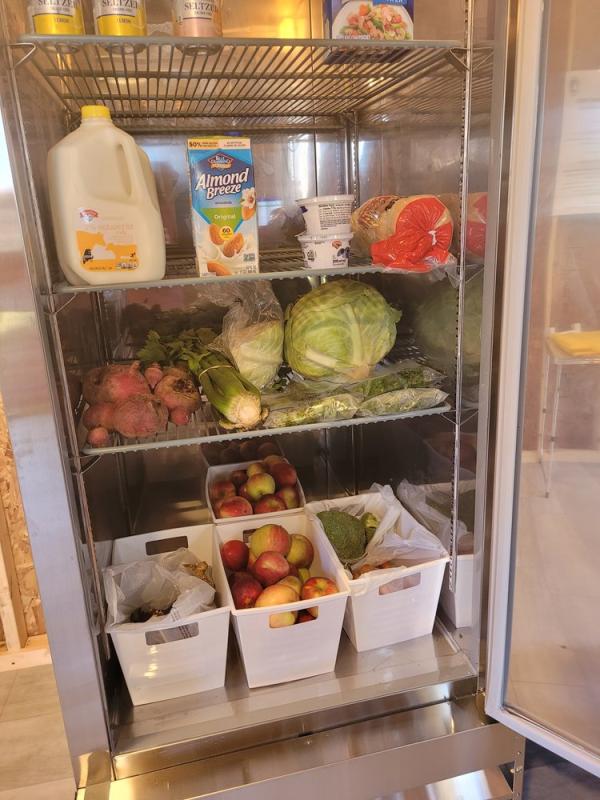End of SNAP COVID supplement creates surprising $180M loss this year for Maine businesses
February brought an end to emergency supplemental benefits created in 2020 for food, in response to the COVID-19 pandemic. With this, Supplemental Nutrition Assistance Program (SNAP) payments returned to normal levels.
The reduced amount is challenging for those struggling to feed themselves and their families and also represents a $180 million loss this year for Maine’s food retailers – from large grocery stores to smaller, owner-operated local markets and convenience stores, according to Maine Department of Health and Human Services.
Christine Cummings, executive director of Maine Grocers and Food Producers Association told the Register, “We were keeping a close eye on that.”
Cummings provided information from DHHS which explained, "Emergency Maximum Allotments will end in February with the last supplemental benefit for most SNAP households being distributed on February 10th. This means that there will be ~$18,000,000 less SNAP distributed in Maine beginning in March per month."
“The last benefit was in February but it carried people through March,” Rep. Holly Stover explained. “The financial impact is already there just through inflation with the cost of housing, electricity and heating bills.”
“Folks don’t realize how much of an impact people will see,” she said. In addition to her duties as the area’s legislative representative, Stover is the director of the Community Resource Council which provides a number of services for area residents.
Hannah Corkum, CRC Community Navigator, explained with the reduction in emergency food benefits, a single person could go from $280 per month to $23, depending on their income. She said there are new programs that may help people with, for example, heat assistance. “Help with one area helps in other areas,” she said. More than 700 clients have used the CRC’s services.
According to the DHHS website, about 100,000 households are receiving SNAP benefits.
“The huge loss to Maine’s retailers is the other side of this equation,” Stover explained. “It’s not just large grocery stores, it’s the economic reality for small privately owned convenience stores that support neighborhoods where people are able to purchase food and the impact on them as well.”
To provide transitional support for Maine’s SNAP recipients and businesses, Stover is sponsoring LD 1584 in the legislature which will, through a one-time appropriation, “temporarily restore benefits being reduced by the federal government,” according to its language. If passed, the bill would create a stepped approach, reducing SNAP payments over six months, from the COVID emergency levels to normal SNAP levels.
“It will give people a little more time to figure out how to make up those losses and still have a healthy diet,” Stover said.
The Register asked area food pantries if there was an increased demand for help corresponding to the SNAP reduction, and found there are slight increases as of early April.
“It’s not dramatic,” said Gretchen Burleigh-Johnson of Help Yourself Shelf at St. Philip's Church in Wiscasset. “We have seen a steady one or two (new) signups per week and new people are coming all the time.”
Her information indicates there was an increase of 30 households this March/April over last year’s number of 243. The pantry also helps people experiencing homelessness, and is partnering with Camp Kieve which creates meals that are provided each week in an informal “meals on wheels” program for those who cannot go out and for seniors.
Pastor Wallace Staples, Wiscasset Church of the Nazarene, said he has seen an increase recently in people coming to that food pantry. In addition to the food pantry, Staples offers a community garden program where people can grow their own produce in his field in Woolwich.
Boothbay Region Food Pantry’s Fleet Davies told the Register they have been aware of the reduction in SNAP payments but it might be too early for an accurate picture. Between January and March, the pantry saw a 40% increase in the number of families participating over the 2022 number for the same time period.
In addition to the food pantries, area resources include Lincoln County Gleaners, Veggies to Table, Temporary Emergency Food Assistance Program (TEFAP) and the CRC’s Food For Thought and Community Fridge programs.
In 2021, Maine’s legislature approved a free school meal law so that every Maine public school student can have free school meals and all Mainers up to the age of 18 are eligible for free breakfasts and lunches during the summer.
For more information about food assistance, contact:
Help Yourself Shelf, St. Philip's Church, Wiscasset, 882-7184
Wiscasset Church of the Nazarene Food Pantry, 882-9088
Boothbay Region Food Pantry, 350-2962
Community Resource Council (Boothbay Area,) 633-6272
Healthy Lincoln County, 563-1330
























